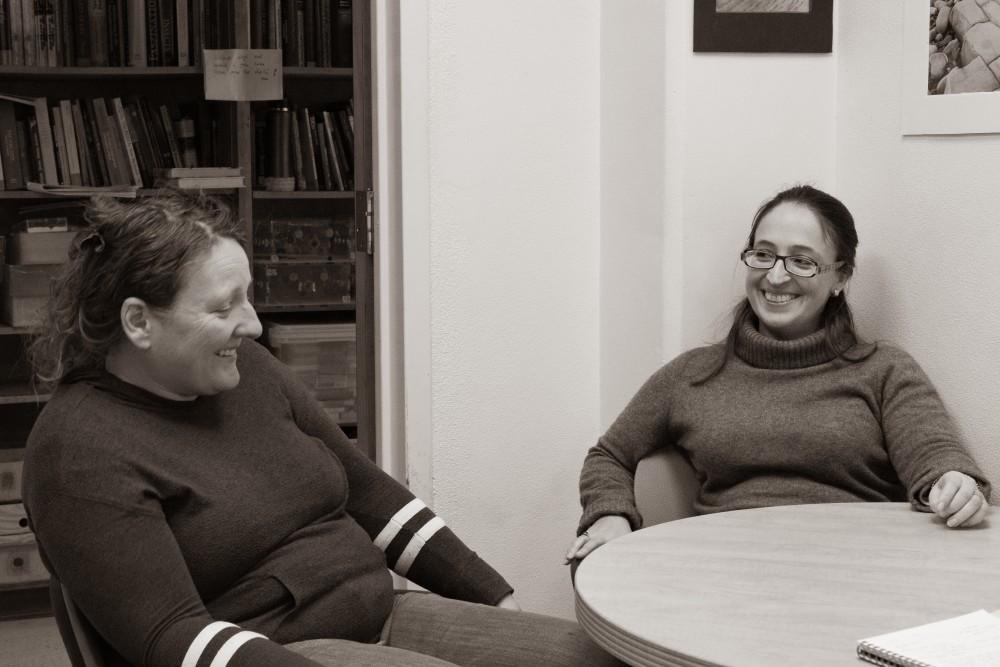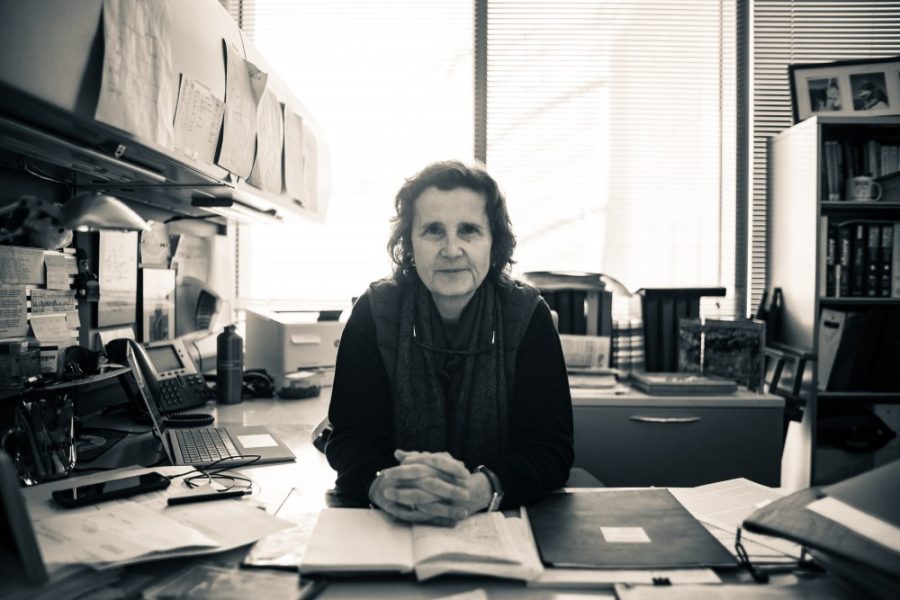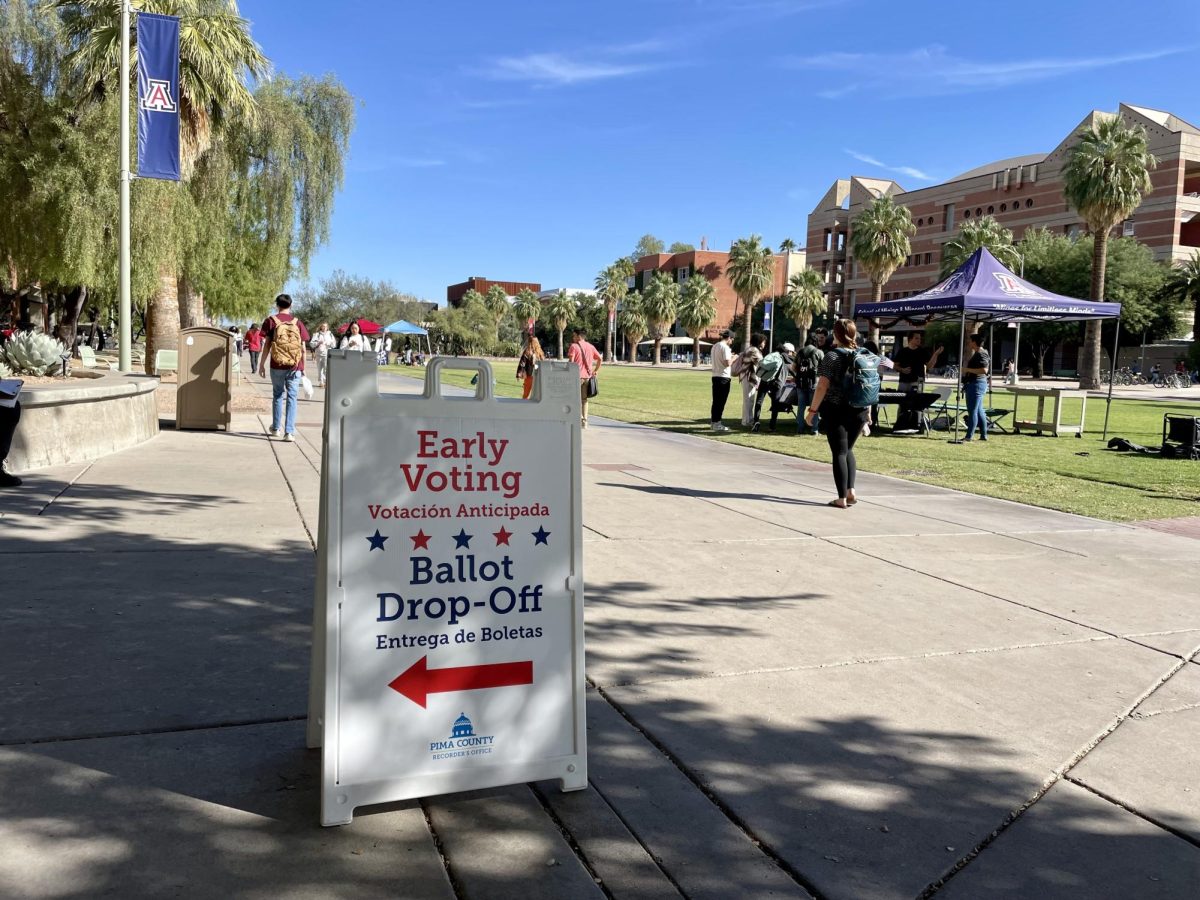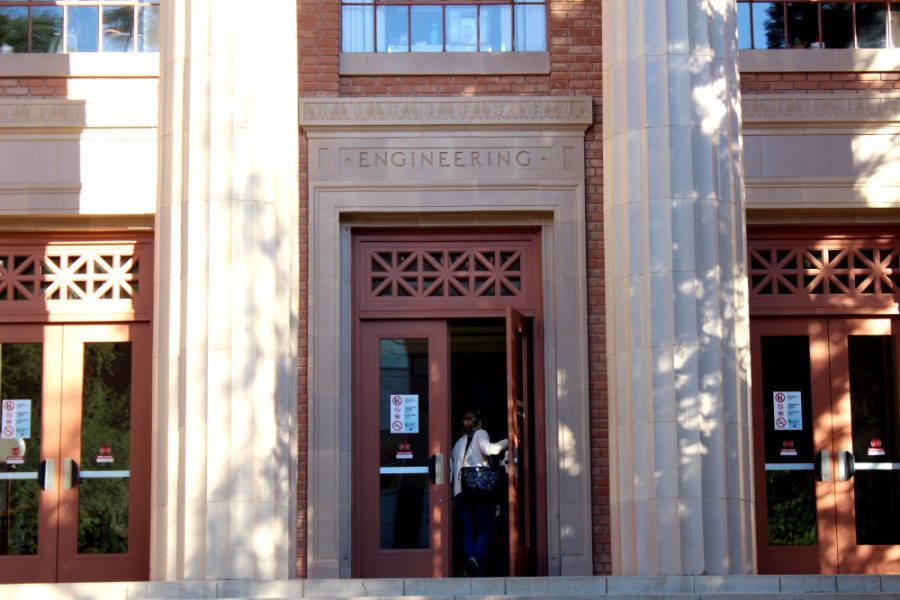Each year, beginning in 2006, the University of Arizona College of Science hosts a lecture series showcasing key speakers who present on a single topic or theme. This year, the series “Searching for Certainty” features six UA scientists giving lectures from Jan. 15 to Feb. 26. For the first time ever, all six of the speakers are women.
“It’s important to recognize that women are not usually represented in these kinds of events, even in the proportion that they exist in the scientific field,” said Anna Dornhaus, a speaker at the series and a professor of ecology and evolutionary biology.
RELATED: UA Science Lecture Series returns with a ‘search for certainty’
Joanna Masel is another speaker at the series and a professor of ecology and evolutionary biology. Masel said when women speak, they are listened to less, so putting a group of women at the forefront of the series and giving them twice as many words can help compensate for that. Masel also said that there seems to be a double bind when it come to being a woman in STEM.
“You’re either seen as competent and unlikable, or you’re seen as soft and likable and not particularly important or competent,” Masel said.
According to the National Science Board, women made up just 28 percent of people employed in STEM occupations in 2015.
“I think it’s good if universities and departments and organizations make an effort to really, deliberately emphasize women’s contributions, because if you don’t deliberately emphasize it, because of our biases, they tend to be underemphasized,” Dornhaus said.
On top of being the first lecture made up of women, the scientists are all fan favorites who have spoken in the lecture before and have been invited back.
One of the speakers, Dr. Donata Vercelli, a professor of cellular and molecular medicine in the College of Medicine, will present on the topic of microbes. She previously presented in the 2013 series “Genomics Now.” Her lecture this year, “The Microbes Shaping Our Lives,” will take place Feb. 12.
“It’s reassuring, because it means that the things we do are considered to be relevant and significant … It’s also reassuring, because it means that somehow we are able to communicate this,” Vercelli said. “You could do fantastic things, but if you can’t communicate, then they’re not going to invite you back to give these talks.”
RELATED: New discoveries on the horizon thanks to grad student’s black hole research
Dornhaus holds the record for presenting at the College of Science lecture series. Her talk, “Can Intelligence Be Measured?” ON Feb. 16, is the fourth time she will speak at the series.
“It feels like an honor and a compliment to be asked again, of course. I do enjoy it, and I enjoy speaking to the public in general, and I feel it’s a wonderful opportunity to showcase not just my work but the field in general,” Dornhaus said.
Masel’s talk, “There is No Certainty,” took place Jan. 15 and was the first lecture of the series. She spoke previously at the very first lecture series in 2006.
Preparation for each lecture takes a lot of time and work. A large group of potential speakers and people putting together the series meet and discuss what they want to talk about and how those talks might fit together under one topic.
“We get an enormous amount of help from the people at the College of Science, even with coaching before we give these talks,” Vercelli said. “So we’re not left on our own to sink or swim.”

Dornhaus, Masel and Vercelli have each worked at the UA for 20 or more years and in that time accomplished many different things they view as highlights, whether it be in their careers, research or personal connections.
Masel said that a big highlight for her is when she can help out a student who is in some sort of trouble.
“Through mentoring I’ve been able to help them to the other side of that … That is enormously rewarding and important,” Masel said.
Each of the scientists had a bit of advice to hand down to the aspiring future generations of STEM. Dornhaus and Masel both shared the belief that getting in the labs and doing hands-on work is incredibly important.
“Once you are in college, get into a lab the first semester you’re here,” Dornhaus said. “I feel like that’s so easy, and yet so few people do it.”
Dornhaus said that students should go through the science departments’ websites, find what the faculty members work on and contact a handful of the professors whose work the students are interested in to see if there are any research opportunities in the labs.
RELATED: UA regents professor Carol Barnes elected to prestigious National Academy of Sciences
Vercelli’s advice was to make sure that the students love what they do, are resilient and motivated and have stamina. She said that sometimes work gets reviewed and rejected, but you have to keep working and moving forward.
“You have to strike a decent balance between believing in what you do but also listening to criticism, because that’s extremely important,” Vercelli said.
Vercelli said that she gets out of bed every morning excited about the work that she gets to do. She said that she has been doing it for many years and although at this point in her career she would be able to look into doing other things, she is passionate about her work and does not want to stop.
“In essence, when you do science, what you are doing is walking into the unknown every day. That’s exactly why you should love it,” Vercelli said.
Other speakers at the “Searching For Certainty” lecture series include Feryal Özel, Joellen Russell and Katalin Gothard. All of the lectures in the series take place in Centennial Hall on Tuesday nights at 7 p.m. and are open to the public.
Follow Quincy Sinek on Twitter















